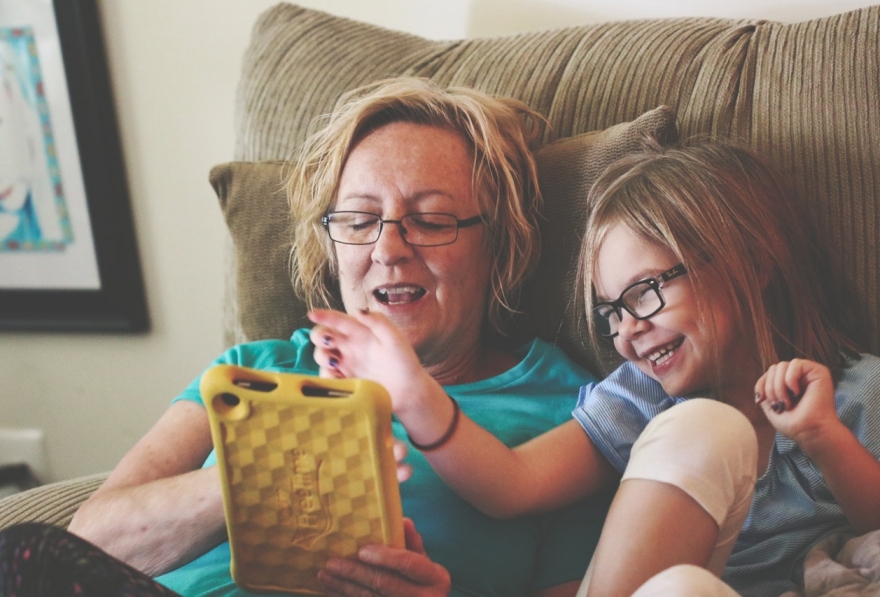For speech therapy to be most effective, practice outside of therapy sessions is very important. No matter what goals you and your child are working towards, practicing each day will allow your child to make progress towards achieving these goals.
Completing speech therapy at home allows your child to practice the skills they are learning each day and in everyday situations. Practice can also be incorporated into many of the games they already play, and with their favourite toys.
Ways to encourage your children to communicate through games
Communication is an essential part of life, and we each communicate with others on a daily basis. We communicate with others for many reasons, such as to get someone’s attention, to request something, to refuse or protest something, to greet or say goodbye, to comment or share information, to answer questions, to ask questions and to show something of interest.
Children with communication difficulties may have a degree of difficulty communicating any number of these communicative functions. Games are a wonderful way to support and encourage children to learn and practice these skills so that they can use them in everyday situations.
Here are some ideas that will encourage your child to communicate when playing games:
- Set up a game incorrectly (e.g. build train tracks upside down or place the track pieces on top of each other) or leave out pieces deliberately (e.g. leave the trains in the box) to provide the opportunity for your child to communicate about what might be wrong, or what might be missing. This will help learn and practice the skills of commenting, requesting, making choices, and refusing all in the one game!
- Large moving play equipment such as swings and see-saws are excellent ways to encourage children to communicate through game play. If using a swing, start by pushing your child on a swing a few times, then stop the swing and wait for your child to make a comment about why the swing has stopped, or to request more pushing.
How to use games during car trips
The car is a language rich environment and an excellent opportunity to spend some time with your child practicing speech sounds and language skills in games.
- “I spy…” is a great game for practicing many communication skills. This simple game can help develop reasoning, describing and listening skills. While playing this game, you can use things such as colours, sizes, or positions, and ask for more descriptive words as your child’s skills improve.
- The Alphabet Game is a fun game for everyone in the car! It is a game where you take turns going through the alphabet thinking of an animal, food or movie character (or any category that you like!) that starts with each letter of the alphabet. If your child is focusing on developing a particular speech sound (e.g. the ‘g’ sounds), you could change this game focusing solely on this sound and naming as many words that you can think of that start with, or have this sound. The Alphabet Game can help your child learn about speech sounds, early literacy skills, categories, sequencing, and new vocabulary.
- Singing is a fun activity to do with your child to help them develop speech and language. Singing repetitive songs helps children learn about concepts, categories, sequencing, and new vocabulary. Songs such as “Old MacDonald Had a Farm” teaches children about a range of different farm animals and the noises that each animal makes. You can even change the song to “Old MacDonald Had a Zoo” to include different animals with different noises.
What games you can play at home
Speech therapy practice can be incorporated into everyday tasks and routines while still keeping practice fun.
Some games that you can play at home are:
- Going on a treasure hunt around your house or backyard is a wonderful way to help your child with learning and develop speech and language skills. On your treasure hunt, you can go looking for things that start with a certain sound (e.g. finding things that start with ‘b’), or find things that fit into the same group (e.g. things that are red, things that are squishy, things that are square).
- Using your child’s favourite toys (a teddy bear, barbie, train, dinosaur) and make them move around other objects together is a great way to teach action and doing words (i.e. up, down, go, stop, jumping, flying, sitting). For example, you can make your toys fly around the room e.g. “Teddy is flying”, and make them do different actions while flying “Teddy is going up”, “Teddy is going down”, “Teddy is spinning”, all while making the actions to what you are saying.
- People games help to teach your child about many aspects of communication. People games are physical activities such as chasing, tickling, or being thrown into the air, that you play with your child. They help your child learn to pay attention to others and copy their actions, sounds and words, and to take turns.
Practice outside of therapy sessions is very important. Practicing every day at home will help your child to make progress towards achieving their speech and language goals.
Contact Harrison Speech Pathology for more tips and suggestions for incorporating speech therapy activities into your home and everyday routines.
Image source: Pexels





